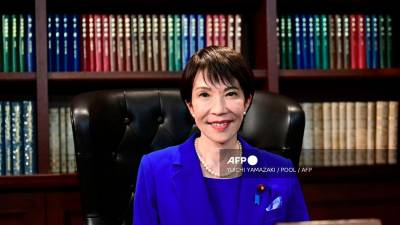TOKYO: Sanae Takaichi is set to become Japan’s first female prime minister while maintaining socially conservative positions in a nation still grappling with patriarchal norms.
The 64-year-old politician, who admires Margaret Thatcher, secured leadership of the ruling Liberal Democratic Party on Saturday and will likely assume office later this month.
She has committed to appointing a cabinet with “Nordic” levels of female representation, a significant increase from outgoing premier Shigeru Ishiba’s two female ministers.
Takaichi has also pledged to raise awareness about women’s health issues and has spoken openly about her personal experience with menopause.
Despite these commitments, her policy positions on gender place her firmly on the right wing of the already conservative LDP.
She opposes revising a 19th-century law requiring married couples to share the same surname, which predominantly results in women adopting their husbands’ names.
Takaichi additionally supports maintaining male-only succession rules for Japan’s imperial family and remains fundamentally opposed to same-sex marriage.
Tokai University professor Yuki Tsuji, who specialises in politics and gender, stated that Takaichi “has no interest in women’s rights or gender equality policies”.
She predicted minimal change in gender policy compared to previous LDP administrations despite the historic leadership appointment.
Tsuji acknowledged the symbolic importance of having a woman as prime minister while warning that failure to deliver results could foster negative perceptions of female leaders.
Tokyo office worker Yuka expressed pride in Japan potentially having its first woman leader but remained sceptical about progress on gender issues.
She highlighted how many capable Japanese women are forced to abandon promising careers to care for children or ageing parents.
Women held just 13.2 percent of management positions in Japan during 2021, the lowest rate among Organisation for Economic Co-operation and Development member nations.
Japan ranked 118th out of 148 countries in the World Economic Forum’s 2025 Global Gender Gap Report, reflecting persistent gender inequality.
Female politicians face significant challenges including sexist remarks, as demonstrated when former deputy prime minister Taro Aso described then-foreign minister Yoko Kamikawa as an “aunty” and “not that beautiful”.
The #MeToo movement has gained limited traction in Japan, with few sexual assault victims coming forward due to fear of online harassment.
Caregiver Ryuki Tatsumi expressed hope that Takaichi’s appointment could represent an opportunity for Japan to make progress on gender issues. – AFP
